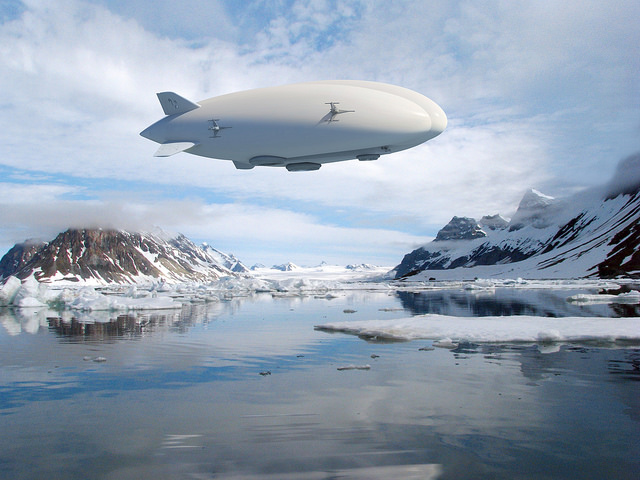A UK-based hybrid airship operator has teamed up with an Arctic logistics specialist to start operating the 85m (280ft)-long Lockheed Martin LMH-1 in 2019 to remote sites in Alaska and northern Canada.
The announced alliance between PRL Logistics and Straightline Aviation comes five months after the latter signed a letter of intent to acquire 12 LMH-1s from Hybrid Enterprises, the Atlanta-based reseller of hybrid airships made by Lockheed’s Skunk Works division.
Terms of the transaction are vague. It remains unclear whether the LoI has yet been converted into an order, but the announced alliance with PRL answers the question of where the Lockheed-built hybrid airships will begin operations.
Alaska-based PRL is a logistics provider serving a rugged clientele of oil and gas drillers and mining companies operating in the remote northern latitudes.

The LMH-1 fulfills Lockheed’s nearly 30-year-old quest to bring hybrid airships to market. These heavier-than-air airships use helium to produce 80% of the necessary lift, with the remainder provided by aerodynamic shaping like the wing of an aircraft. Four Continental-built, 350hp engines provide thrust. The LMH-1 also uses a hovercraft-like Air Cushion Landing System to moor on the ground, replacing the need to tie down the giant airship in austere locations.
Lockheed pioneered hybrid airship operations in 2006 with a series of test flights of the P-791, but lost a US Army competition to build the long-endurance multi-intelligence vehicle (LEMV). The winner of that competition, the HAV-304, was returned to UK-based Hybrid Air Vehicles, and was rebranded and modified into the AirLander 10.
Meanwhile, Lockheed continued to develop the LMH-1 to carry a 22t payload, which is similar to the company’s fixed-wing C-130J transport. The LMH-1 also will carry 18 passengers. Although a hybrid airship, the LMH-1 still requires operators to add ballast, such as water or dirt, as payload is offloaded at the destination, as the airship’s buoyancy would overwhelm the landing system with an empty cargo hold.
“Alaska is an ideal location for the hybrid airship to operate,” says Rob Weiss, executive vice-president and general manager of Lockheed’s Skunk Works. “The airship enables access to Alaska’s most isolated regions, and is designed to protect the sensitive ecological environment.”
Source: FlightGlobal.com


























